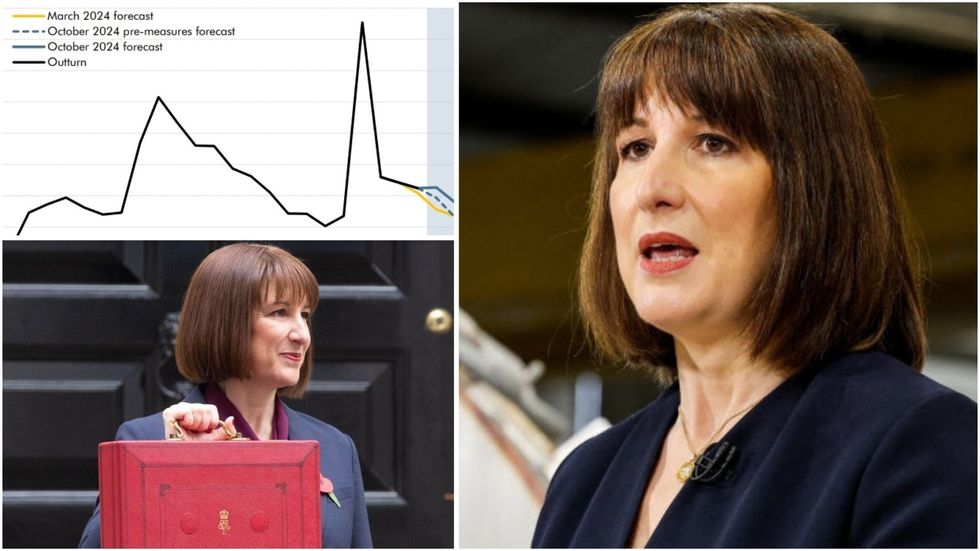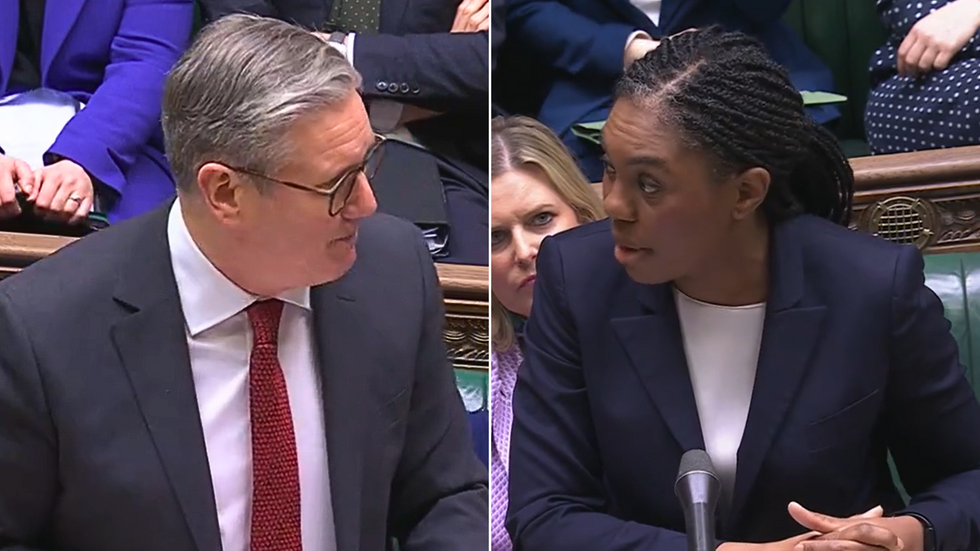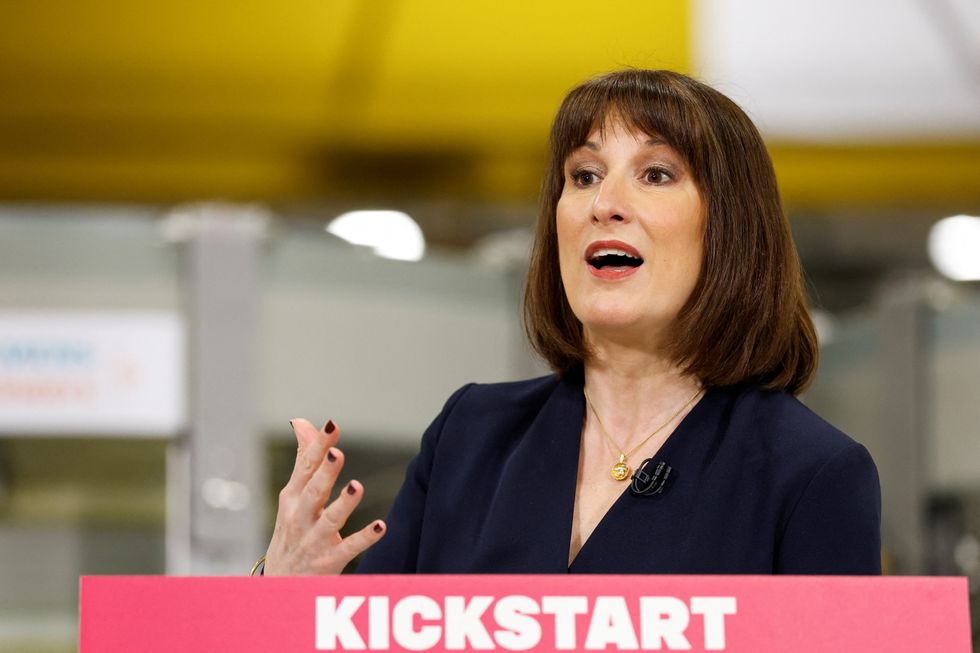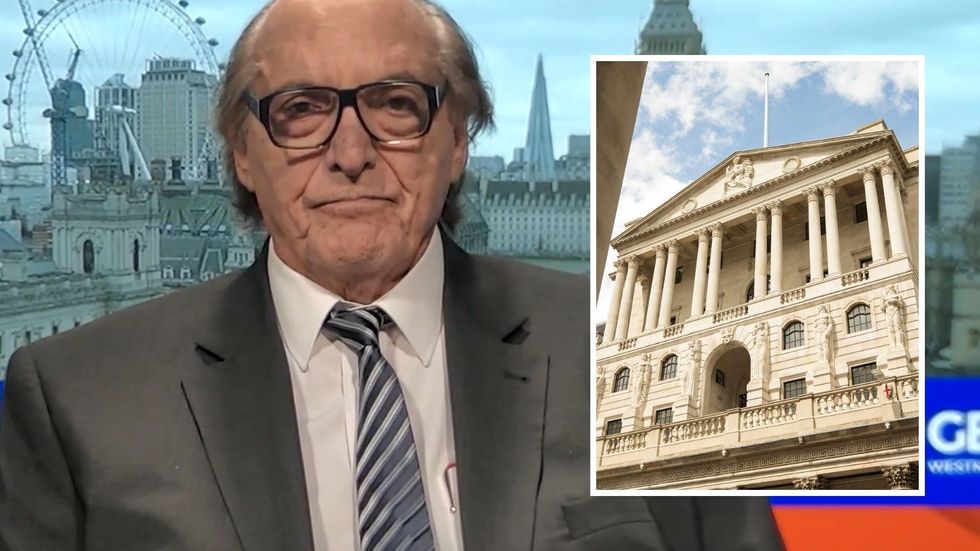'Something has to give’: Experts predict YOUR next tax rises as Chancellor scrambles to rescue failing budget
The growth which Reeves banked her budget on so heavily has failed to materialise leaving the Chancellor in a precarious situation
Don't Miss
Most Read
Trending on GB News
Experts have revealed what tax raids Reeves could enact next as the Chancellor scrambles to save her failing budget.
Labour’s bombshell budget, which raised taxes by £40billion and spending by roughly £70billion, relied on the UK economy growing and the resulting tax receipt boosts for the Treasury.
But many of the measures have been received as being too anti-business and driven on ideology rather than economic sense.
The massive hike to Employers’ National Insurance, labelled as the ‘jobs tax’, will make it prohibitively more expensive to employ people, for example.
Coupled with a large increase in the minimum wage, cash-strapped businesses are cutting back on employee benefits, pay raises and hiring people in the first place, not to mention passing costs on to the consumer.
The slashing of inheritance tax relief for businesses and farmers has also sparked a recession as family businesses and farms scale back investment, cancel plans to grow, cut down on staff bills and stop placing orders to save for a huge tax bill.
This goes without mentioning slashing winter fuel payments, a VAT raid on private schools and subjecting pensions to death taxes, all of which will raise little money and are seen as Labour attacks on sections of society who do not vote for them.
All these policies, coupled with Labour’s repeated economic doom-mongering, have created an unattractive image of Britain, the results of which are now being felt in the markets, OBR forecasts and Bank of England announcements.
 Rachel Reeves under pressure to raise taxes or cut spending as £9.9bn fiscal headroom 'evaporates'GETTY/OBR/ONS
Rachel Reeves under pressure to raise taxes or cut spending as £9.9bn fiscal headroom 'evaporates'GETTY/OBR/ONSJust this week, the OBR told Reeves she had run out of fiscal headroom after growth failed to materialise and interest rates and the cost of borrowing rose.
Director of the Institute for Fiscal Studies Paul Johnson said: “If, as seems likely, Reeves is missing her fiscal targets, then it’s going to be really hard to meet them by squeezing spending beyond already tight plans.
“The inevitable result will be that she’s forced into further tax rises. To meet her rules, those could be delayed until 2029.”
GB News put all this to economists and finance experts to see what option are on the table for Reeves.
Personal finance expert and senior contributor at Coupon Mister Andrew Gosselin said: “The UK economy isn’t growing, inflation is still high, and government debt is piling up.
“There was hope that things would pick up, but growth projections keep getting revised downward. The Bank of England now expects just 0.75% growth this year, down from the earlier 1.5% estimate.
“The deficit is widening, borrowing costs are rising, and the fiscal headroom Reeves was counting on is gone. That means something has to give—either taxes go up, spending gets cut, or both.”
 Labour DESTROYING economic growth, Badenoch warns
Labour DESTROYING economic growth, Badenoch warnsHoC TV
Gosselin then outlined what taxes Reeves could go after to try and revive her faltering budget.
“Corporation tax is an obvious target. Businesses have already been hit with increases, but the government might push it further, especially for large companies,” he said.
“Income tax could be adjusted, but raising it for everyone is politically risky, so higher earners would likely bear the brunt. VAT is another option, but a broad increase would hit consumers hard at a time when disposable income is already tight.”
Spending, which Reeves increased by £70billion (mostly for the NHS), is the other area the Chancellor can look to make savings via cuts, as Gosselin highlighted.
“On the spending side, public services are always under pressure in times like these. Health and education budgets are difficult to touch without backlash, but smaller programs might see reductions.
“Infrastructure projects that haven’t started yet could be delayed or scrapped to free up cash. The problem is that cutting investment can slow growth even further, which puts the government in a difficult position.
“Public confidence is low. People are more concerned about their own financial situations than government balancing acts. If wages don’t keep up with inflation and taxes go up, frustration will grow.
“The Spring Forecast will be a defining moment. If there’s no clear plan to boost growth, the pressure on Reeves will only increase.”
 The Tories have labelled Reeves and Sir Keir Starmer 'barriers to growth'PA
The Tories have labelled Reeves and Sir Keir Starmer 'barriers to growth'PAEconomist Roger Gewolbgave a similarly damning assessment of the UK’s current economic situation.
“The economy is not growing, and I do not personally believe that we have seen even the beginning of the damage that Labour has done by increasing employers' national insurance.
“In short, I predict we are going to see significant increases in unemployment and businesses folding as a result of this jobs tax, minimum wage increases etc, all the while the cost-of-living crisis continues pretty much unabated.”
Asked what options Reeves has left to go for, Gewolb said: “I think the only thing left for her is some windfall taxes on the energy and oil companies and the banks as they are all benefiting tremendously through this period.
“As thick as they are, they must realise that they cannot squeeze consumers any further. I may well be wrong as their stubborn arrogance may know no bounds.
“We know pensions are already going to be messed with [inheritance tax], fuel tax is also a convenient place for her to look and I think at the end of the day, when they all realise how stuck they really are, they just may have to raise the income tax rate for the rich.
“When people say, ‘you promised you wouldn’t’, Labour will just blame the world situation- the war in Ukraine, Gaza, the Houthis, the things Trump and Musk are doing- they are sure that voters will understand.”
LATEST FROM MEMBERSHIP:

Dr Roger Gewolb shares his economic expertise with GB News
GB NEWS/GETTYReeves’ critics say it is an example of Thatcher’s famous quote that ‘the problem with socialism is that you eventually run out of other people's money’.
Several highly controversial measures are also being looked at by Reeves and HM Treasury such as means testing the state pension and subjecting ISA earnings to income tax, reports have claimed.
Australia means tests their state pension on whether you own your own home, its value and your savings.
If a similar system was adopted in Britain, it could save the Treasury billions as over 70 per cent of pensioners own their homes, many of which have seen their value balloon thanks to the housing crisis.
But old folk fear falling just under the pension threshold and losing out on the support, despite not being wealthy and having paid taxes all their life.
ISA earnings, currently tax free on investments up to £20,000, could also be taxed as normal income, a measure set to hit older people again.
This is because pensioners are more likely to opt for safe, steady ISA investments, but Reeves wants the £300 billion tied up in ISA to be invested in riskier but more lucrative markets in the hope it will boost growth.
A Treasury spokesman said: 'We want to help people save for their future goals. We keep all aspects of savings policy under review.'







